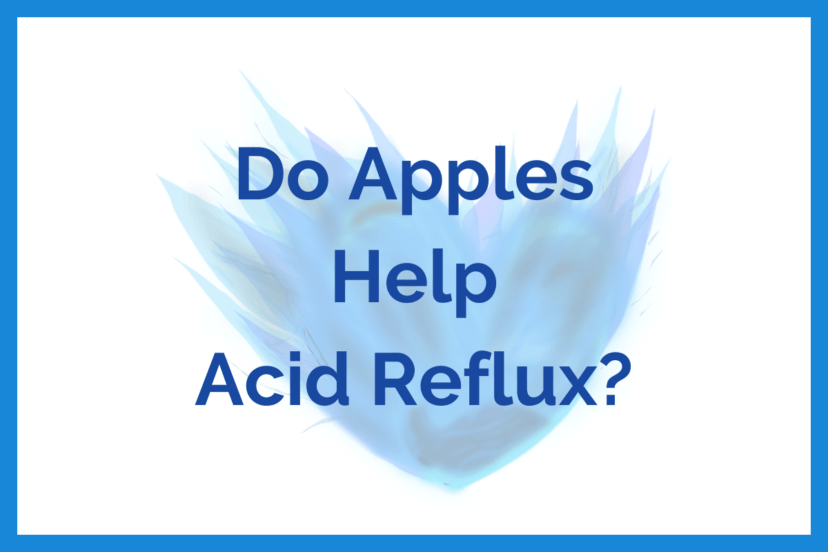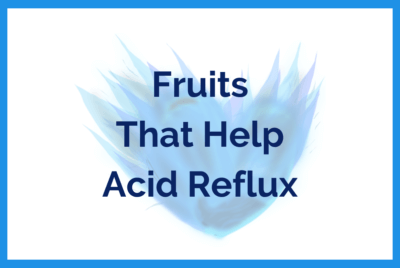Do Apples Help Acid Reflux?
Table of Contents
Introduction – Do Apples Help Acid Reflux
Acid reflux is an uncomfortable condition that affects millions of people. It occurs when stomach acid flows back up into the esophagus, causing symptoms like heartburn, regurgitation, and chest pain. With the right diet and lifestyle changes, many people are able to manage their acid reflux symptoms. But what about apples – do apples help acid reflux or worsen it? In this article, we’ll explore the effects of apples on acid reflux and provide tips for eating them as part of an acid reflux-friendly diet.
What is acid reflux?
Acid reflux, also known as gastroesophageal reflux disease (GERD), is caused when the valve between the stomach and esophagus doesn’t close properly. This allows acidic stomach contents to rise up into the esophagus. The main symptom is heartburn, which feels like a burning pain or discomfort behind the breastbone. Other common symptoms include regurgitation, difficulty swallowing, sore throat, and chest pain.
If left untreated, acid reflux can damage the lining of the esophagus and even lead to precancerous changes like Barrett’s esophagus. That’s why it’s important to manage symptoms through lifestyle changes and medication if needed.
Apples and acid reflux
So how exactly do apples impact acid reflux? There are a few factors to consider. Let’s take a closer look.
Do Apples Help or Worsen Acid Reflux?

Acidity of apples
Apples do contain organic acids like malic and tartaric acid, which can stimulate acid production in the stomach. However, apples are generally considered a low-acid fruit. Their pH is around 3.3 to 4.0 when raw. That’s less acidic than things like lemons or grapefruit.
So while apples are acidic, they typically don’t contain enough acid on their own to aggravate reflux symptoms in most people. But of course, individual triggers can vary.
Pectin in apples
One of the biggest benefits of apples for acid reflux is their high pectin content. Pectin is a type of soluble fiber found in fruits like apples and oranges.
Pectin has a few helpful effects on reflux:
Coating effect
Pectin can help coat and protect the esophagus from damage by stomach acid. This can provide relief from burning sensations.
Slows digestion
Pectin also slows digestion, which helps prevent acid surges. Slower stomach emptying means acid is released more gradually instead of large amounts at once.
Antioxidants in apples
Apples are also packed with beneficial plant compounds like vitamin C and quercetin that act as antioxidants.
Vitamin C
This vitamin is essential for healing and preventing damage to the esophagus. It promotes tissue growth and repair.
Quercetin
This antioxidant compound has anti-inflammatory effects that may help relieve swelling or irritation in the esophagus caused by acid reflux.
The combination of pectin fiber and antioxidants make apples a great food for managing acid reflux symptoms. But to get the most benefits, there are some preparation tips to follow.
Useful Article
Will Eating Apples Help If You Have Acid Reflux?
https://www.healthline.com/health/digestive-health/apples-and-acid-reflux#1

Best Ways to Eat Apples for Acid Reflux
Avoid skin
The skin of apples contains most of the fruit’s pectin fiber. But the skin is also the most acidic part. Peeling your apples can help reduce the acidity.
Baked apples
Baking apples into a crumble or pie can reduce their overall acidity. Opt for minimal added sugar. Baking also softens the apples into an easier to digest texture.
Applesauce
Pureeing or mashing apples into applesauce eliminates skin acidity and breaks down fiber for better digestion. Avoid added sugars.
Pureed apple
For a fiber and nutrient boost, add peeled, chopped apples into smoothies. The blender helps break down the pectin and pulp.
Apple smoothies
Try blending apple with anti-inflammatory ingredients like almond milk, spinach, oatmeal or chia seeds.
Eating apples in moderation and in prepared ways can help provide symptom relief from acid reflux. But diet alone isn’t always enough. Here are some other important tips.
Other Tips for Managing Acid Reflux with Diet
Avoid trigger foods
While apples may be fine for many, other foods like coffee, alcohol, citrus fruits and spicy foods are common heartburn triggers. Pay attention to your own personal triggers.
Smaller portions
Eating large meals presses on the stomach and forces acid up into the esophagus. Try smaller, more frequent meals. Don’t rush while eating.
Don’t lie down after eating
Give your body time to digest before lying down. Stay upright for 3-4 hours after meals. Gravity helps keep acid where it belongs.
Lose weight
Excess weight presses on the stomach and causes acid to back up. Losing even a few pounds can provide relief.
Avoid late-night eating
Eating a full meal right before bed makes it easier for acid to come up when you’re lying flat. Have your last meal a few hours before bed.
Making dietary modifications and lifestyle changes can prevent acid reflux flare-ups. But for persistent symptoms, medications like antacids or proton pump inhibitors may be needed. Always talk to your doctor about the best treatment options.
When to See a Doctor
Occasional acid reflux can usually be managed at home with over-the-counter medicines and the measures described above. But if your symptoms are chronic and severe, it’s important to see your doctor. Let them know if you regularly experience any of the following:
- Frequent heartburn 2 or more times per week
- Difficulty or pain when swallowing
- Persistent sore throat
- Hoarseness or voice changes
- Regurgitation of food
- Chest pain
- Disruptive nighttime symptoms
These may be signs of more serious damage in the esophagus that requires medical treatment. Diagnostic tests like endoscopy can check for tissue inflammation or precancerous cell changes.
Don’t brush frequent heartburn off as normal. Early intervention and proper management of acid reflux can help prevent complications. Work with your doctor to get your symptoms under control and improve your quality of life.
Conclusion
For many people with acid reflux, apples can be a safe and nutritious fruit choice. Apples contain pectin fiber that can help protect the esophagus and antioxidants that promote healing. Enjoy apples baked, pureed, or as applesauce, and avoid highly acidic apple skin. When combined with other dietary and lifestyle changes, apples can be an effective part of your acid reflux-friendly diet. Just be sure to choose preparation methods that reduce apple skin acidity. Pay attention to your personal tolerance. And see your doctor if symptoms persist despite self-care measures. With the right treatment plan, acid reflux doesn’t have to get in the way of enjoying apples and other nutritious foods.
FAQs
- Do apples cure acid reflux?
No, they don’t cure it, but they may help alleviate symptoms. - What type of apple is best for acid reflux?
Tart apples like Granny Smith might be preferable. - Can eating too many apples cause acid reflux?
Individual reactions vary, but moderation is key. - What other foods can help with acid reflux?
Foods like ginger, oatmeal, and lean meats may be helpful. - Are there medications that can treat acid reflux?
Yes, over-the-counter antacids and prescription medications can be effective. - What other lifestyle changes can help with acid reflux?
Quitting smoking and reducing alcohol intake might also provide relief. - Can children eat apples to help with acid reflux?
It’s best to consult a pediatrician, as children’s needs and reactions might differ from adults. - Are there any side effects to eating apples?
Generally, apples are safe, but overconsumption may lead to digestive issues in some individuals. - Is apple juice good for acid reflux?
Apple juice might be less beneficial, as it lacks the fiber found in whole apples. - How do I know if I need medical intervention for acid reflux?
Persistent or worsening symptoms are signs that you should seek professional medical advice.




